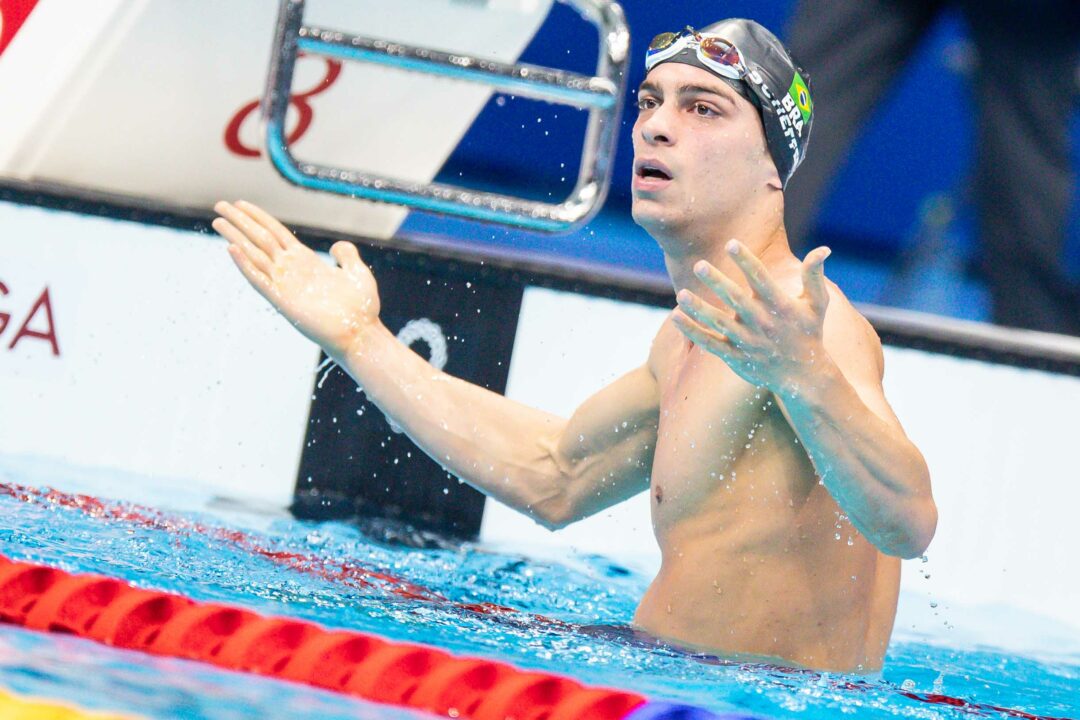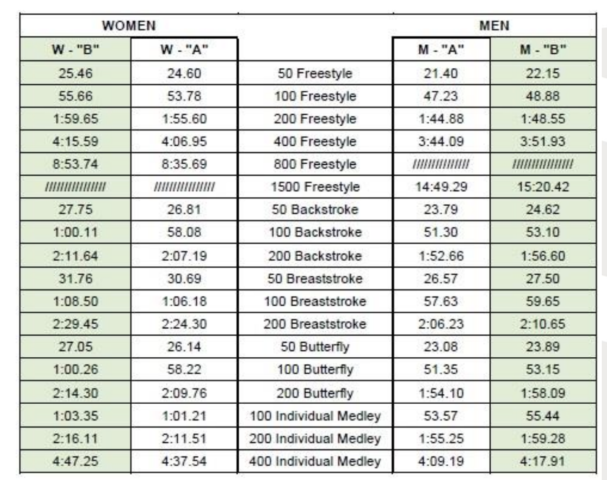2021 JOSE FINKEL TROPHY (BRAZILIAN SWIMMING C’SHIPS)
- Tuesday, August 10th – Saturday, August 14th
- Bauru, Brazil
- SCM (25m)
- Primary Selection Meet For World Short Course Championships
- Start List
Straight off of the 2020 Tokyo Olympic Games, several elite athletes are entered in the Jose Finkel Trophy taking place in Bauru, Brazil this week.
Beginning today, Tuesday, August 10th, swimmers to the tune of 200m freestyle bronze medalist Fernando Scheffer and open water gold medalist Ana Marcela Da Cunha will be diving in, vying for roster spots for this year’s World Short Course Championships.
The Jose Finkel Trophy represents the sole qualifying opportunity for Abu Dhabi, with the Brazilian Swimming Federation (CBDA) capping off the maximum lineup count at 20. Of those, the federation mandates that 6 places must be given to female athletes.
If at the end of this Jose Finkel Trophy, the 20 slots are not allocated, the CBDA may summon other athletes to fill out the roster.
Marcelo Chierighini
Breno Correia
Guilherme Costa
Leonardo De Deus


I have always been confused on the funding system within Brazil swimming. I see older swimmers like Felipe Silva, Joao Gomes, and Nicholas Santos have steady club support yet are only contenders on the international stage for minor medals in non-Olympic events, never medaled at an OG, and will likely never make an Olympic team again (Santos last made it in 2012, Gomes and Silva made it in 2016). Yet, there have been a stream of Olympic finalists/medalists–like Fratus, Cielo, and Pereira–over the past two cycles dropped by their teams because they are considered “too old”. Can anyone explain this logic to me? I can only assume there are some politics behind this.
Basically the whole system is built around private clubs and their main goal is to win the national club championship, therefore athletes who are not multi-events swimmers and/or are training focused on bigger international stages are dropped and usually left out for our NOC to fund.
It is identical to what the ISL does actually, it’s been like that in Brasil for decades.